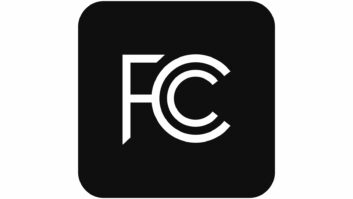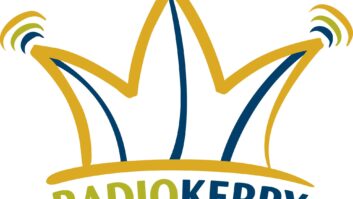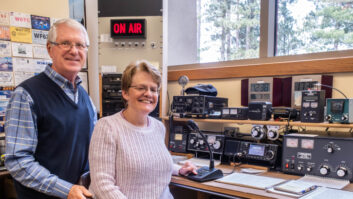
It is easy for me to write about Digi-Key, having been a customer of theirs for more than 30 years. This company has grown from a small local concern to an international supplier of electronic parts. Interestingly, international is now 40 percent of Digi-Key’s business. They sell to manufacturers, which order parts by the truckload, as well as to design engineers and small companies, like mine, ordering components for building and servicing broadcast equipment.
Resistors, capacitors, ICs, transistors — you name it, they probably have it. I remember when the Digi-Key catalog was something like the shopper in a local newspaper. It grew to a whopping 2,896 pages before being discontinued in 2011 in favor of their online version. With 960,000 parts on hand in an 800,000-square-foot facility, I can see why the change was necessary. How did they do that?
Well, the story goes back to 1972, some 42 years ago, when Ron Stordahl, N5IN, was looking for parts to build a “digital keyer” for his amateur radio transmitter. He purchased more than needed and then sold parts to others. One thing led to another and he had a company that grew into a $1.5 billion-per-year concern.

Workstations add and subtract items from the conveyor belt, which never stops. Bar code readers on green arms keep track of everything. It takes 2,600 employees to make this company run, in a town of only 8,500 people in northwestern Minnesota. No fewer than 650 suppliers feed the demand at this place. Some 3.3 million orders are processed annually. They ship as many as 17,000 orders in one day, mostly by UPS and FedEx, both of which have direct flights daily from Thief River Falls to their respective national hubs.
Is Ron Stordahl still involved? Yes, he still owns this privately held corporation, but has turned over the presidency to life-long friend Mark Larson.
I took the opportunity to interview Larson recently to learn more. He said the company pays competitive wages but enhances the employee relationship with strong benefits including college tuition in some instances.
On average, employees stay at Digi-Key for seven years. A Midwestern work ethic and management style have led to Digi-Key be rated number one for customer service by independent surveys, I’m told. Some 150 employees are engineers helping design engineers select parts.
It is interesting to note that the cell or smartphone that you carry today was probably prototyped with parts from Digi-Key. A huge part of their business is catering to electronic designers worldwide. The time between order entry and a box with parts ready to go out the door is 20 minutes or less. An order can be on the other side of the world in 54 hours or less. Customers order online 24/7 or call in an order to knowledgeable order takers. I noticed a tracking chart showing delay time between a call and when a sales representative answered. It averaged 4 to 5 seconds.

President Mark Larson. Employees pick parts from bins in their immediate area and put them, wrapped and bar coded, on conveyor belts, which move the items to a shipping station. That location will receive parts from other sections of the plant until the order is complete and ready to be packed. Automatic bar code readers handle the sorting process quickly and efficiently. That same conveyor belt delivers parts to stock locations at the same time. Very clever!
Years back I received an incorrect part from Digi-Key. It took less than 60 seconds on the phone to determine that the part came from the right area and the right distance from the conveyor, except that it was from one row over. The person I talked to knew how this must have happened and sent me the correct part immediately.
Another time I ordered a wrong part, and Digi-Key has happy to take it back and refund all but the shipping. I understand the system in place now makes that kind of mistake almost impossible.
After visiting the plant, I can see why Digi-Key is a well-respected supplier of parts to the electronic repair industry, and sixth-ranked electronic component supplier in the world. Interestingly, CBS took note of Digi-Key recently in an Osgood File report; visit radioworld.com/links for the transcript. And visit the company website at www.digikey.com.
Mark Persons, WØMH, is a professional broadcast engineer certified by the Society of Broadcast Engineers and has more than 30 years’ experience. He has written numerous articles for industry publications over the years. His website iswww.mwpersons.com.












